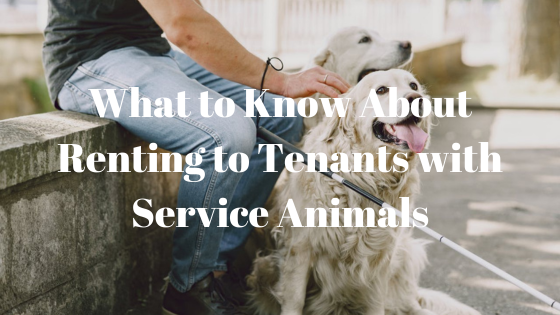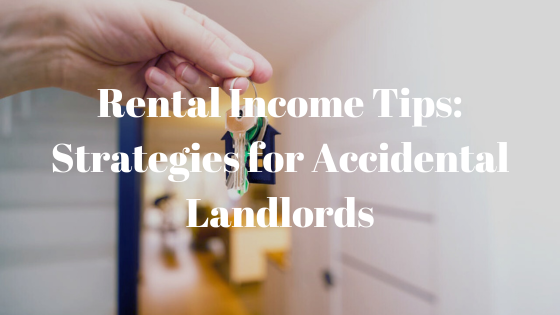What to Know About Renting to Tenants with Service Animals

Key Takeaways
- Landlords must accommodate service and assistance animals, even with no-pet policies or breed restrictions.
- Only limited verification can be requested, and pet fees aren’t allowed, but tenants are still responsible for any damage.
- Clear policies and professional guidance help ensure requests are handled correctly and legally.
Have you ever wondered what your responsibilities are when a prospective tenant asks to bring a service animal into your rental unit? It’s a situation that can raise questions about rules, fairness, and legal responsibility for landlords in the Raleigh/Durham region and throughout North Carolina.
To help you navigate this with clarity and confidence,
Dawson Property Management put together this article. We'll walk through key laws, best practices, and how to protect your property while remaining compliant and fair.
Understanding the Legal Basics
When a tenant tells you they need a service animal or assistance animal, you must recognize that under federal law their request may qualify as a “reasonable accommodation.” The Fair Housing Act (FHA) requires most landlords to allow modifications to pet or animal policies when a disabled tenant needs an animal for equal housing opportunity.
Under the Americans with Disabilities Act (ADA), service animals in public places must be accommodated, but housing matters are guided more directly by the FHA and related law.
In North Carolina, this means your “no-pets” rule, breed restrictions, or pet-deposit requirements do not automatically apply when a tenant has a legitimate service or support animal.
What Counts as a Service or Assistance Animal
A “service animal” under the ADA is defined narrowly: typically a dog (and in limited cases a miniature horse) that is individually trained to carry out specific tasks related to a person’s disability.
This may include guiding a person who is blind, pulling a wheelchair, alerting a person who is deaf, or protecting someone during a seizure.
The FHA uses a broader concept: an assistance or support animal (sometimes called an emotional support animal) provides relief, emotional or otherwise, for a person with a disability and does not necessarily need specialized training.
The key takeaway: whichever label applies, if the tenant has a disability and the animal is needed as a reasonable accommodation, you must treat the request seriously instead of following typical pet screening protocols.
What You Can and Cannot Ask for as a Landlord
You need to tread carefully. You are allowed to ask certain limited questions if the disability or need for the animal is not obvious. For example:
- Does the tenant have a disability?
- Is the animal needed because of the disability?
Tenants, however, are entitled to certain privacy rights. Therefore, you may not ask for full medical records, require proof of training or certification, or ask detailed questions about the nature of the disability.
You also cannot enforce your
standard pet rules, such as requiring a pet deposit, charging pet rent, or denying a breed or size because your policy says “no large dogs”, when a service or assistance animal is involved.

However, you can still hold the tenant responsible for property damage caused by the animal. That’s separate from whether you can charge a fee up front or impose breed or size restrictions.
Practical Steps for Landlords in North Carolina
Have a clear policy. Include a written section in your lease or rental application explaining how you handle requests for service or assistance animals. Even if you’re in the Triangle area or elsewhere in North Carolina, clarity helps avoid confusion.
Process the accommodation request in writing. Ask the tenant to submit their request and any documentation that supports the need, such as a letter from a licensed practitioner. The letter does not have to provide diagnosis details, just establish disability and animal need.
Do not enforce pet deposits or pet fees if the request qualifies under the law. You may still charge for damage later.
Update the lease or add an addendum confirming the accommodation and specifying tenant responsibilities, such as keeping the animal under control, maintaining vaccinations, and covering any damage.
Ensure the animal behaves. If the tenant’s animal causes serious disruption or harm, you may have grounds to treat it as a lease violation. Just make sure to apply the same standards and document everything.

Train your staff or property manager. Anyone handling tenant communications should know how to manage accommodation requests professionally and lawfully. Mistakes can lead to
discrimination claims or fines.
Why Partnering with a Property Management Company Makes Sense
When you’re managing multiple units in Wake County, Durham County, or surrounding areas, staying on top of evolving housing laws is a lot to keep up with. A property management company brings the experience and legal awareness to handle service-animal accommodation requests correctly, reducing risk and saving you time.
They’ll ensure your forms, leasing documents, and staff training are up to date and compliant. By handing this responsibility to professionals, you lower the chance of mishandling a request or facing a legal challenge. A good property manager should
set
clear expectations and keep detailed records of requests, communications, addenda, and property inspections, protecting both you and your investment.
Bottom Line
Renting to tenants with service or assistance animals isn’t just about kindness, it’s about compliance. Understand what the law requires, treat requests fairly, maintain your property, and continue enforcing behavioral standards while waiving pet fees when required.
If you’d rather delegate these complexities,
Dawson Property Management can help. From reviewing requests and preparing documentation to monitoring compliance and property conditions, we make sure your rental runs smoothly and legally. Contact us today to learn how we can simplify property management and help you protect your investment with confidence.








